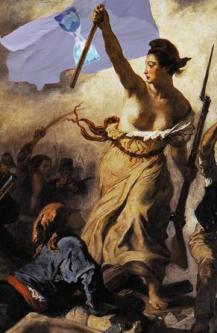
In mid-September, Occupy Wall Street began in downtown Manhattan. For over a century, Wall Street has represented wealth and political power. Now, the streets of the financial district that only months before gleamed with the facade of enduring capitalism were flooded by ‘occupiers’, revealing the truth behind the broken promises of equal opportunity and corrupt excess of corporate America.
Here were people from all walks of life, foreclosed and unemployed, students with debts and those who struggle with a pay-or-die medical system. As the people marched with a mixture of jubilation and outrage against the plutocratic takeover of power, the glorified spectacle of the American Dream crumbled in the background.
No one can deny that the Occupy Movement struck a chord with the rank and file of America as it quickly spread nationwide. A couple months in, students at UC Berkeley pitched tents on the Mario Savio steps in front of Sproul Hall. When UC police came to dismantle the tents, students linked arms, standing up for their right to freely express themselves. Facing them, armed police violently jabbed them with sticks. This contrast became obvious to the world immediately as the YouTube video of the police attack went viral.
Tim Hetherington was a photojournalist and Oscar-nominated documentary filmmaker who was killed, along with his equally acclaimed colleague Chris Hondros, on Wednesday, 20 April, as they worked to cover a group of rebels opposed to the Gadhafi regime in Misrata, Libya.
In January 2009, Hetherington talked with his colleague James Brabazon at the Frontline Club in London about their work in West Africa. The discussion is a seminar on how interconnected politics are among former colonies artificially constructed as separate nations. Listen especially at about 1.11, when Hetherington talks about the problem of Western reporters dropping in to grab topical stories without grasping the historical and cultural context.
Many are dying in Libya and elsewhere because of the international crime of aggressive war, and most of those who die will not be memorialized in the international media, including the blogosphere. It still matters to recognize the value of every individual life. Tim Hetherington and Chris Hondros knew better than most how many human beings are being slaughtered and ignored as if nameless, as if they didn't matter, and they worked precisely to reinscribe that truth: we all matter. All honour to them.
And on Chris Hondros, from the Editor and Publisher article:
Theme by Danetsoft and Danang Probo Sayekti inspired by Maksimer